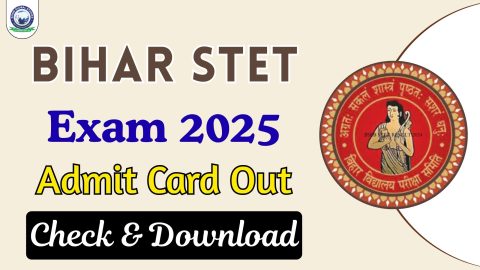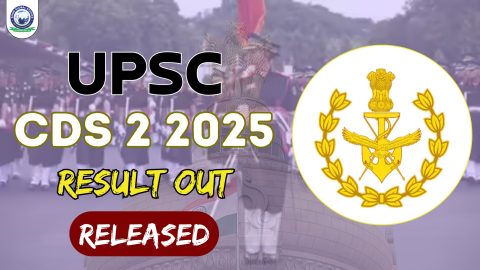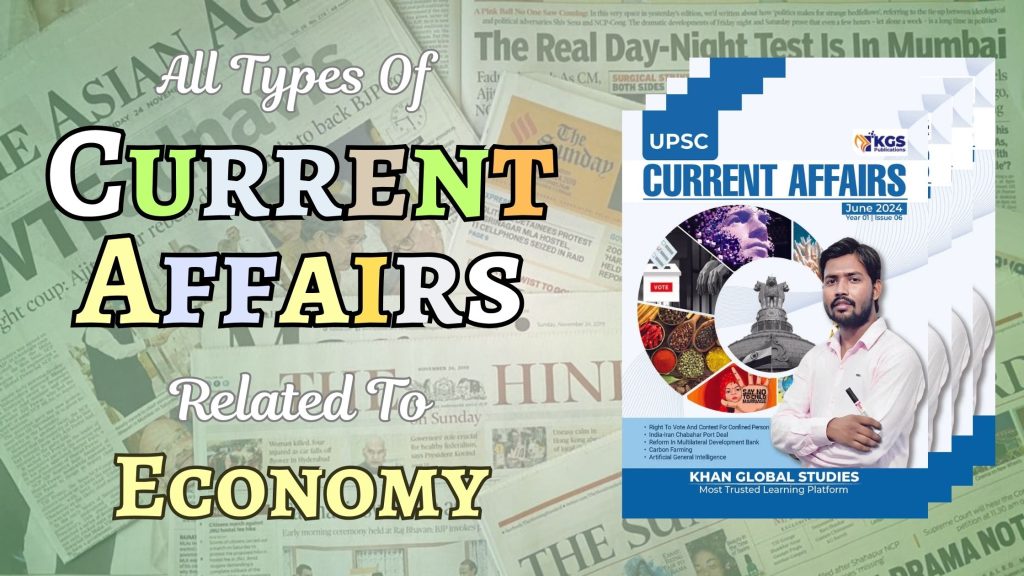Keeping pace with economic developments has become essential for competitive exam preparation, particularly for UPSC and state PSC candidates. Economic current affairs form the backbone of general studies papers and interview discussions, making comprehensive coverage of this subject crucial for success.
Economic events shape policy decisions, influence market dynamics, and affect millions of lives. From budget announcements to monetary policy changes, understanding these developments helps candidates analyse their broader implications. This knowledge proves invaluable not just for examinations but for developing a nuanced understanding of governance and public policy.
The economic landscape changes rapidly. New policies emerge, global events create ripple effects, and statistical data gets updated regularly. Staying current with these changes requires systematic preparation and reliable sources. Many successful candidates credit their economic current affairs preparation as a key differentiator in their performance.
This guide explores effective strategies for mastering economic current affairs, covering essential topics, reliable sources, and practical preparation methods. Whether you’re preparing for prelims, mains, or interviews, these insights will help you build a robust foundation in economic current affairs.
Essential Economic Topics for Current Affairs
Budget and Fiscal Policy
Union and state budgets represent the government’s financial blueprint for the year. Key areas include:
- Revenue and expenditure patterns
- Tax policy changes and their implications
- Fiscal deficit trends and management strategies
- Capital expenditure allocations across sectors
- Subsidy reforms and their economic impact
Recent budget announcements often feature prominently in examinations. Understanding budget terminology, analysing allocation patterns, and evaluating policy intentions helps in answering both factual and analytical questions.
Monetary Policy and Banking
The Reserve Bank of India’s monetary policy decisions significantly influence economic conditions:
- Interest rate changes and their rationale
- Inflation targeting mechanisms
- Banking sector reforms and regulations
- Digital payment initiatives and their progress
- Financial inclusion programmes and outcomes
These topics frequently appear in both prelims MCQs and mains essay questions. Candidates should track RBI bulletins, policy statements, and economic surveys for comprehensive coverage.
International Trade and Commerce
Global economic integration makes international trade knowledge essential:
- India’s trade relationships with major partners
- Export-import trends and policy changes
- Trade agreements and their implications
- Foreign direct investment patterns
- Balance of payments analysis
Understanding trade dynamics helps candidates connect domestic policies with global economic trends, a skill highly valued in UPSC interviews.
Employment and Labour Economics
Employment statistics and labour market reforms remain priority areas:
- Unemployment rate trends across demographics
- Skill development initiatives and their effectiveness
- Labour law reforms and their intended outcomes
- MGNREGA implementation and rural employment
- Industrial relations and productivity measures
These topics often intersect with social issues, making them particularly relevant for mains examination questions.
Reliable Sources for Economic Current Affairs
Government Publications
Official sources provide authentic and comprehensive information:
Economic Survey: Published annually before the Union Budget, it offers detailed analysis of economic performance, challenges, and policy recommendations. The survey’s thematic chapters often inspire examination questions.
RBI Publications: The central bank’s monthly bulletins, annual reports, and policy documents contain valuable data on monetary policy, banking sector performance, and economic indicators.
Ministry Reports: Sectoral ministries publish regular updates on their performance, policy changes, and future plans. These reports help understand ground-level implementation of economic policies.
Reputable News Sources
Quality journalism provides timely analysis and expert opinions:
- The Hindu: Known for comprehensive coverage of economic policy and analysis
- Business Standard: Offers detailed business and economic reporting
- Livemint: Provides data-driven economic journalism and expert commentary
- Economic and Political Weekly: Features academic perspectives on economic issues
Analytical Platforms
Several platforms offer curated economic content specifically for competitive exams:
- PRS Legislative Research: Provides analysis of bills, budget, and policy documents
- Centre for Monitoring Indian Economy (CMIE): Offers economic data and analysis
- Observer Research Foundation: Publishes research on economic policy issues
Effective Preparation Strategies
Daily Reading Routine
Establish a systematic approach to economic current affairs:
Morning Routine: Begin with economic headlines from reliable newspapers. Focus on understanding the context and implications rather than memorising facts.
Weekly Summary: Dedicate time each week to consolidate economic developments. Create theme-wise summaries covering fiscal policy, monetary policy, and sectoral updates.
Monthly Review: At month-end, analyse major economic announcements, policy changes, and their potential examination relevance.
Note-Making Techniques
Effective notes transform scattered information into examination-ready content:
Thematic Organisation: Group related topics together. For example, combine GST collections, direct tax trends, and fiscal deficit data under “Government Finances.”
Timeline Creation: Maintain chronological records of major economic announcements. This helps in understanding policy evolution and answering questions requiring historical perspective.
Impact Analysis: For each major economic development, note its potential effects on different stakeholders, sectors, and regions.
Integration with Static Syllabus
Connect current developments with fundamental economic concepts:
- Link monetary policy changes to concepts of inflation and economic growth
- Relate trade policy updates to theories of international economics
- Connect employment data to labour economics principles
This integration helps in answering questions that require both conceptual understanding and current awareness.
Making Economic Data Examination-Ready
Understanding Statistical Trends
Economic current affairs often involve interpreting data and statistics:
Growth Rates: Understand how to calculate and interpret GDP growth, sectoral growth, and year-on-year changes.
Index Numbers: Familiarise yourself with various economic indices like WPI, CPI, and their implications for policy-making.
Comparative Analysis: Practice comparing India’s economic performance with other countries and historical trends.
Developing Analytical Skills
Move beyond factual knowledge to develop analytical capabilities:
Cause and Effect: For every economic development, identify underlying causes and potential consequences.
Stakeholder Impact: Analyse how economic policies affect different groups—farmers, industry, consumers, and government.
Policy Evaluation: Develop skills to assess the effectiveness of economic policies based on available data and outcomes.
Common Mistakes to Avoid
Many candidates make avoidable errors in economic current affairs preparation:
Information Overload: Attempting to cover every economic news item leads to superficial understanding. Focus on significant developments with examination relevance.
Lack of Context: Memorising economic data without understanding its significance limits analytical capability. Always seek to understand the broader implications.
Ignoring Regional Variations: Economic impacts often vary across states and regions. Understanding these variations helps in providing comprehensive answers.
Outdated Information: Economic data gets revised regularly. Ensure your preparation materials contain the latest information.
Building Long-term Economic Understanding
Economic current affairs preparation should contribute to broader economic literacy:
Policy Evolution Tracking
Follow how economic policies evolve over time. Understanding the journey from policy announcement to implementation to outcome evaluation provides valuable insights for examination answers.
Sectoral Deep Dives
Periodically focus on specific economic sectors—agriculture, manufacturing, services—to understand their unique challenges, opportunities, and policy requirements.
Comparative Studies
Study how other countries address similar economic challenges. This global perspective enhances answer quality, particularly in mains examination and interviews.
Maximising Your Economic Current Affairs Preparation
Success in economic current affairs requires consistent effort, strategic focus, and analytical thinking. The economic landscape offers numerous opportunities for candidates who invest time in understanding patterns, policies, and their implications.
Regular practice with previous year questions helps identify examination trends and focus areas. Mock tests and discussion groups provide platforms for testing understanding and learning from peers’ insights.
Remember that economic current affairs preparation extends beyond examination success. The knowledge gained helps in understanding governance challenges, policy trade-offs, and development priorities—skills valuable for any administrative role.
Stay curious about economic developments, question underlying assumptions, and seek to understand multiple perspectives on policy issues. This approach not only enhances examination performance but also builds the analytical foundation essential for public service.
Economic current affairs mastery requires patience and persistence. Start with reliable sources, maintain consistent preparation habits, and gradually build your analytical capabilities. With dedicated effort, this challenging subject can become your competitive advantage.




